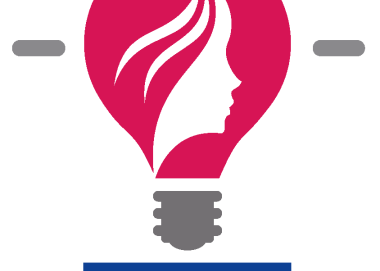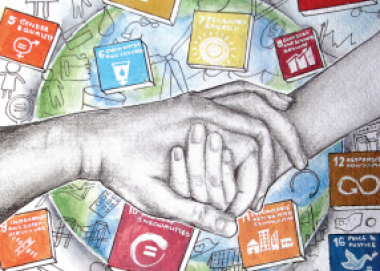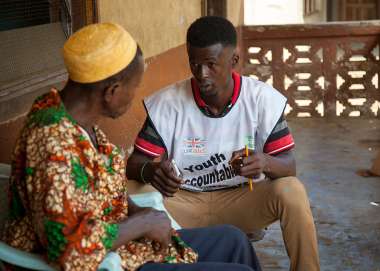Innocent Hauya, Christian Aid Breaking the Barriers Programme Manager, explores how women are tackling energy poverty through new sustainable businesses and speaking out on energy policy change.
Last October, a small but determined group of local women in Karonga district, Malawi, presented a petition to the district council and the Ministry of Natural Resources, Energy and Mining demanding an increase in rural electrification.
They lobbied for more access to off grid energy solutions to increase job opportunities and incomes for women, which would go some way to address gender inequalities.
Breaking the Barriers
These women are from Breaking the Barriers programme, which Christian Aid is implementing in Burkina Faso, Ethiopia, Honduras and Malawi, with support from the European Union. 197 women’s groups across the four countries are being supported to establish their own sustainable energy businesses and promote gender equality.
Women’s sustainable energy businesses in Malawi
In a country where the demand for solar energy is surging, these women’s groups are developing sustainable energy enterprises in rice, fish, and horticulture. The enterprises are powered by solar energy. Solar fridges and driers ensure that the women can sell their produce at an optimum time and price. This means they can diversify and increase their incomes.
These solar energy enterprises have generated significant interest in solar lighting, meaning that many more people are now lighting their homes in the evening, and school children are able to study at home after dark. These clean and sustainable energy businesses mark a shift away from traditional use of biomass (mainly firewood and charcoal) for domestic consumption, which has a myriad of health, social and climate impacts.
Shifting energy policy
The impact of the Breaking the Barriers programme does not end there. Women are being supported to establish their own businesses, which is making very real changes to their living conditions and how they are viewed in their community. But to achieve lasting change, the women are also speaking out about energy poverty at a district and national level to push policymakers to make very real and permanent changes.
In 2019, Breaking the Barriers engaged with the Malawian parliamentary women’s caucus, which addresses gender and social inequalities, to lobby the female members of parliament to address energy poverty.
Positive changes are taking place, and in September 2019, the Malawian parliament passed a tax amendment legislation that will remove import duty on all solar products to help increase access to alternative energy sources.
The women from Karonga have also helped keep sustainable energy in the Malawian national news with the opening of their new briquette-making factory, scheduled for March 2020. The briquettes will replace fuel wood, which is now scarce in Karonga due to deforestation.
This is a great start to a ground-breaking programme, which recognises that to truly increase women’s jobs and income in the sustainable energy sector, and create lasting change, we need to continue to not only work with women across the four countries to establish sustainable enterprises, but also to lobby for changes in energy policy and the regulatory environment.




